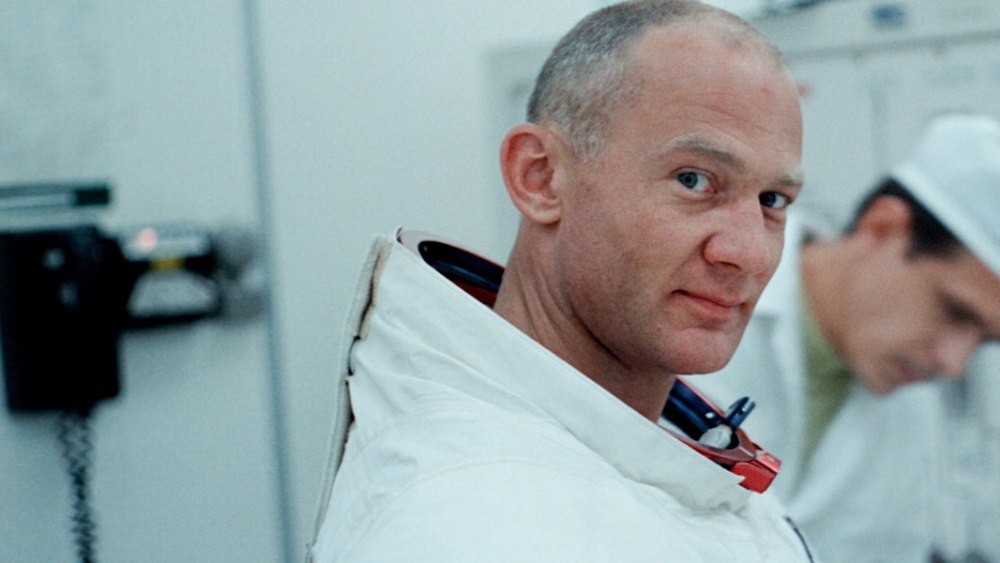
Apollo 11 is a documentary directed and produced by Todd Douglas Miller, focused on the Apollo 11 mission in 1969. By enlisting archivists and historians, the history of the mission is at the forefront, no frills, no commentary, just Apollo 11. From preparing for launch, Neil Armstrong’s first steps on the moon, and the safe return back to Earth, Apollo 11 covers it all.
I will start by saying that if you are looking for a Hollywood version of this story, this isn’t for you. Apollo 11 can seem slow at times but it’s a deliberate choice, it’s real. The film starts five hours before NASA’s Apollo 11 launch and covers the entire nine-day journey. The Miller, along with help from NASA archive producer, Stephen Slater, took nine days worth of Apollo 11 mission footage and audio, including footage not seen by the public since it’s first airing, and condensed it into a 93-minute masterpiece.
There are no interviews or any narration in the film. Instead, it consists of footage from the NASA archive for the Apollo 11 mission. All of the dialogue is from various broadcasts during the missions, including that of television programs and from transmissions between the astronauts and mission control.
Apollo 11 does an amazing job of immersing its audience in the mission. Even though it is a documentary on an event that already happened and you know what the outcome is, there are times I forgot I was watching a movie. I truly felt like I was on the journey with these astronauts. There are parts where it is just audio transmissions with very little going on and that is when it hits you with that “wow factor,” and you say to yourself “Wow, this really happened.” The director and producers wanted this to be as authentic as possible. With 100% of this film made from Apollo footage, they did a beautiful job of putting everything matching all of the pictures and footage to the audio.

At the Q&A after the South by Southwest screening of the film, the creative explained the painstaking process of matching footage to audio, and to present everything in a chronological manner. One of the pieces in this process included looking at clocks in the background or notes to find time clues, which for nine-days of footage is a tall order. They also explained the process of filling the small gaps in the footage, like recording the sound of a Saturn rocket or recreating views from the shuttle.
While watching the film, you also get that sense of unity and camaraderie that is always talked about during the time Apollo program. With the broadcast coverage and personal footage used, you get that see parks and bleachers filled with people cheering and watching these astronauts embark on their journey.
Apollo 11 not only gives the audience the ability to see the mission visually, but it also allows them to access it emotionally. It is clear that this mission was important, and that it was made possible not only by the astronauts but by the thousands of people that worked on the Apollo program and the millions of people that were supporting them every step of the way.
If there is one downside to this film – and this is really is nitpicking – it would be that I can’t see a viewer getting the same experience watching this at home versus in a theater, especially in Imax. They wanted you to not only hear the Saturn V rocket lift off but feel it too, along with a few other visual and audio gems. As they explained in the Q&A, the creative team consulted with the remaining astronauts from the mission in order to make sure everything sounded as authentic as possible, and that experience is something I am not sure the home viewer will get.
In addition to this, Matt Morton does a breathtaking job with the score of this film. Of all the things this movie does well, the sound editing and score are the best. To top it all off, every piece of music in the film was made with instruments and equipment from 1969.
Apollo 11 is a must-see for anyone between the cinematography, historical context, and just overall inspiration this movie gives to people. The producers wanted to not only make a film but an experience and well they did. Mission Accomplished.
If you would like to learn and hear more about Project Apollo check out But Why Tho? the podcast’s Project Apollo Matters Episode.
Apollo 11
-
Rating - 11/1010/10
TL; DR
Apollo 11 is a must-see for anyone between the cinematography, historical context, and just overall inspiration this movie gives to people. The producers wanted to not only make a film but an experience and well they did. Mission Accomplished.






